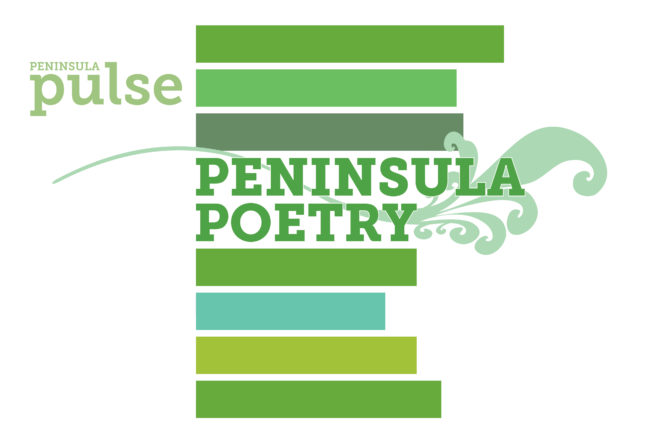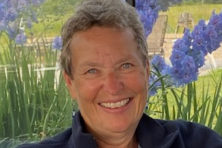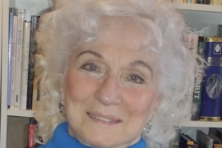Peninsula Poetry: Peter Sherrill
- Share
- Tweet
- Pin
- Share

Peter Sherrill’s poems and essays have appeared in a variety of state and regional publications, and he is a past president of the Wisconsin Fellowship of Poets. He and his wife, Carrie, facilitate the Art/Speaks ekphrastic writing events through Write On, Door County. They are both preliminary judges for the Hal Prize in poetry.

What is your writing routine?
I’ve recently become vision impaired, which really changed my routine. Since I can’t read printed text or handwriting, I spend a lot of time at the keyboard using Windows’ Narrator – its screen reader – which is agonizingly slow, but effective. It’s what I’m writing this with. That slowdown makes me consider my word choices and images more carefully as I compose. Not ideal, but the drafts end up looking a little more like finished pieces.
What do most poorly written poems have in common?
The ones that rub me the wrong way lie at either end of the spectrum between “obvious” and “obscure.” Some pound themselves at you mercilessly. Others expect you to have a working knowledge of, say, ancient Mesopotamian legends to make sense of the work. There is a middle ground where both poet and reader have some work to do. That’s where the poem belongs.
Also, using anguished syntax to get that “perfect” meter or rhyme bothers me. The poem should have as natural a voice as possible, unless the voice is distorted for a specific effect.
What do most well-written poems have in common?
The title should catch my imagination and usher me into the poem. The opening line should be strong and clear enough to make me want to keep reading. The body should flesh out the subject with economy and precision. The final line or two should close the poem and make me feel my time was well spent.
Is it important to understand the meaning of the poem or for the reader to be able to “solve” it?
This speaks to the space between “obvious” and “obscure.” Yes, the reader should have at least a clue or two. I don’t mind pondering the meaning, but if I come to the end and ask, “What the heck was this poet talking about?” I feel little motivation to “crack the code.”
One of my first editors told me [that if the average person] can’t get something out of the work, it hasn’t earned ink and paper. I still think that’s a pretty good test.
What book are you reading right now?
Red Comet by Heather Clark. It’s the latest and most authoritative biography of Sylvia Plath, backed by recently released journals, diaries and correspondence.
Peninsula Poetry is a monthly column curated by the Door County Poets Collective, a 12-member working group that was formed to publish Soundings: Door County in Poetry in 2015 and continues to meet.
For My First Wife Show me your heart she says how do I know you love me Open up she says how do I know what’s inside How do I know it’s your heart she sighs there’s too much blood in here
Aubade an Etheree She blesses the morning her two fingers scrolling my shoulder invoking a sunrise in the still-dark morning hours sunlight streams in my chest, my eyes already glowing. Before I rise, I bless her fingers, the morning, the day.
At the Clothesline The wind is so delicious, this last day of July I cannot help but hang the laundry a little longer, find a few more things to pin up on the line. But most of all the towels and sheets. And I will leave them, drifting lazily in this last-day-of-July’s breeze, until the sun is well down and the weather man is calling for more clouds come sunup tomorrow. I will pad out onto the porch in my socks, evening glass of wine just thrumming my ears and fold these simple things away, fold them and tuck them into the bottom of the linen closet. And on a February night, when there are no windows open, and the wind is nobody’s friend I will slip them out, onto the towel bar and the mattress and we will breathe the warm breath of the last day of July as we dry each other and slip into our dreams wound around each other like the wind like the wind from the last day of July, we will slip into our dreams and wind them around each other the way the wind from the last day of July slipped into the threads and waited for us. And our dreams will twine into one warm breath of July, from the last day of July and we will sleep the sleep of a cool July evening with the wind lifting the curtains and hiding in between the threads.


